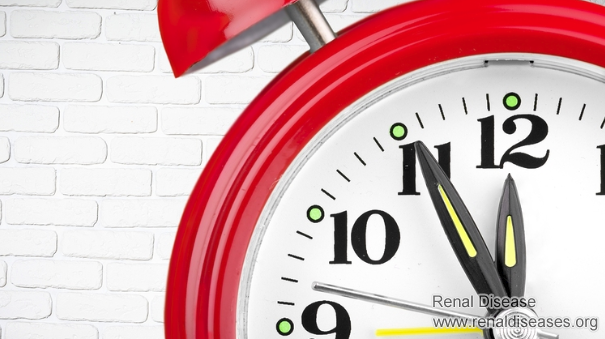Whatsapp: +8615512139310
- Email us:

A minority of kidney diseases can be completely cured, such as almost all acute nephritis, most minimal change disease, one-third of Membranous Nephropathy, etc.
Although most kidney diseases are difficult to be completely cured, they can be controlled and will not progress to uremia in a lifetime, such as most Nephritis Syndrome, Purpura Nephritis, part Nephrotic Syndrome, part Lupus Nephritis and so on.
However, there are still some kidney diseases, because of persistent urinary protein and hypertension and other condition difficult to control, to eventually progress to uremia.
So, if not cured, how long does it take for kidney disease to enter the uremia stage?
Chronic kidney disease is divided into 5 stages (1-5 stages), and uremia is the 5th stage. From stage 1 to stage 5, it is a slow process, and the time varies from years to decades (few progress to uremia within months).
The duration mainly depends on the following factors:
Pathological type;
Whether early initiation of treatment;
Whether to control hypertension below 140/90;
Whether to control the level of urinary protein below 1 g/day or even lower;
Whether to adhere to the "five low and one high" diet;
Whether to keep a good sleep and rest.
In the following, we will talk it in detail according to the disease.
1. Minimal Change Disease (MCD)
Children are more likely to have MCD, and about 90% of children Nephrotic Syndrome is MCD. MCD is sensitive to steroids and immunosuppressants, so proteinuria is easy to control.
For young and middle-aged or old people with the disease, their effective is not as good as children. In a small number of patients, the pathological pattern changes (e.g., changes to focal segmental glomerulosclerosis), making it difficult to decrease urinary protein. More than 90 percent of MCD can be cured, and 10 percent of patients will progress to uremia decades later.
The most common type of glomerulonephritis occurs in young adults, accounting for nearly half of the cases, with the majority showing moderate proteinuria. If the urinary protein can be controlled within 0.5g after treatment, it is less likely to progress to uremia, and the ideal target is to control the urinary protein within 0.3g.
However, if the urinary protein is still more than 1g or even more than 3g after treatment, it will enter the uremia period in a few years or a dozen years.
3. Membranous Nephropathy
It occurs more common in the elderly, and urinary protein is often very high, up to10g, much more than the standard of a large amount of proteinuria 3.5g. Although the urinary protein is very high, if it can be reduced by more than 50%, the rate of progression to uremia will be greatly reduced. If urinary protein is 1g or 2g, it is much less likely to cause renal failure than IgA Nephropathy.
In one third of patients with Membranous Nephropathy, urinary protein is difficult to relieve and the disease can progress to uremia in a few years or decades.
4. Diabetic Nephropathy
It has become one of the most common chronic kidney diseases. Diabetic Nephropathy occurs in 50% of diabetics with diabetes in 10 years; With a history of diabetes for 15 years, almost 100% of patients develop Diabetic Nephropathy. Almost all Diabetic Nephropathy patients are being treated for diabetes, but few are being treated for kidney disease, because Diabetic Nephropathy has no symptoms or physical discomforts before stage 4.
Diabetic Nephropathy takes an average of 15 years from stage 1 to stage 5 uremia. If kidney damage can be detected early and treated in time, this time can be extended; The time to progress to uremia can be greatly reduced if symptoms of discomfort are retreated.
All in all, time is not absolute, and very elastic. Kidney disease that can be cured can also progress to uremia if the patient does not pay attention to living habits and treatment is not appropriate. With serious kidney disease, if the patient can cooperate well, the kidneys can also be protected well.
For more information on kidney disease, please leave a message below or contact online doctor.